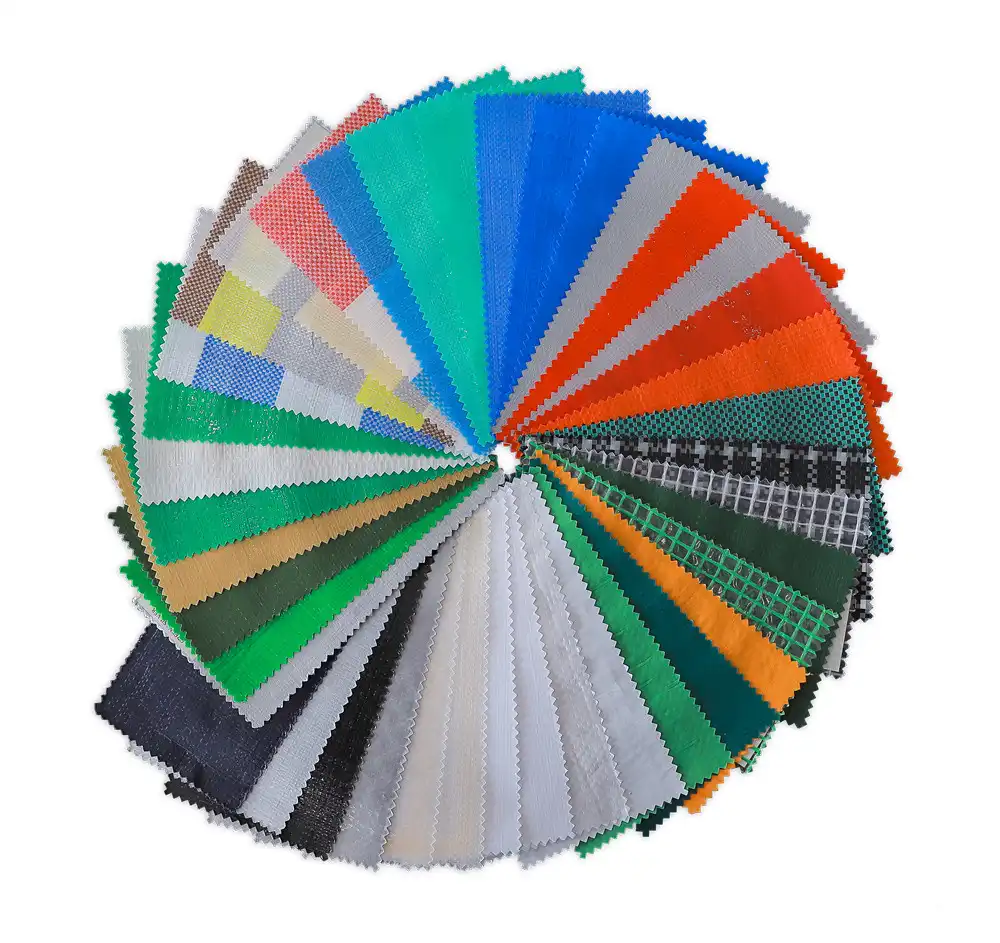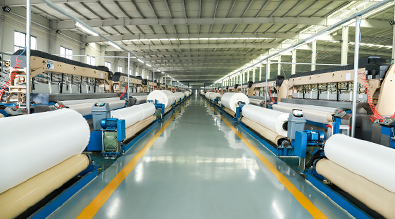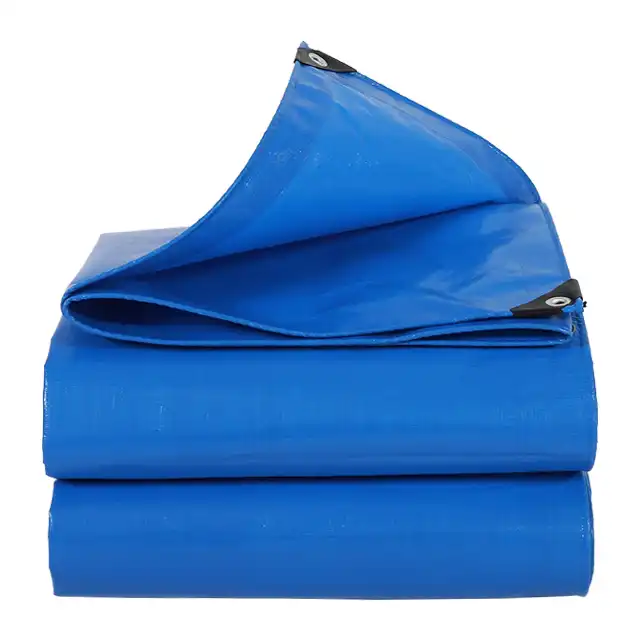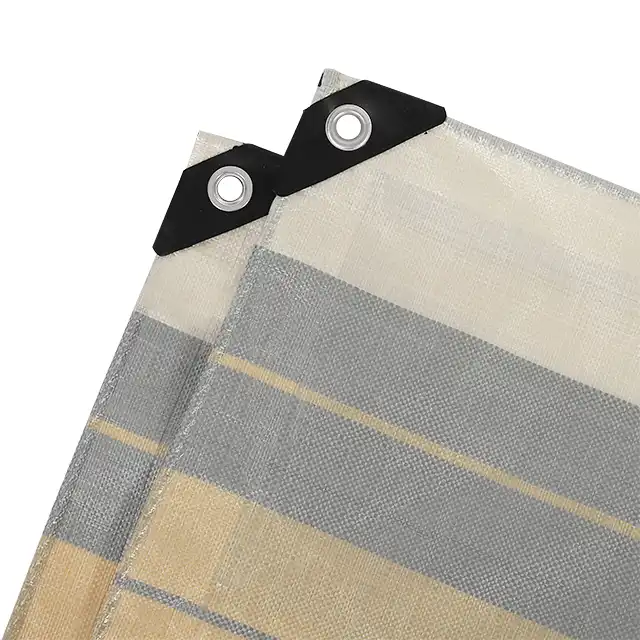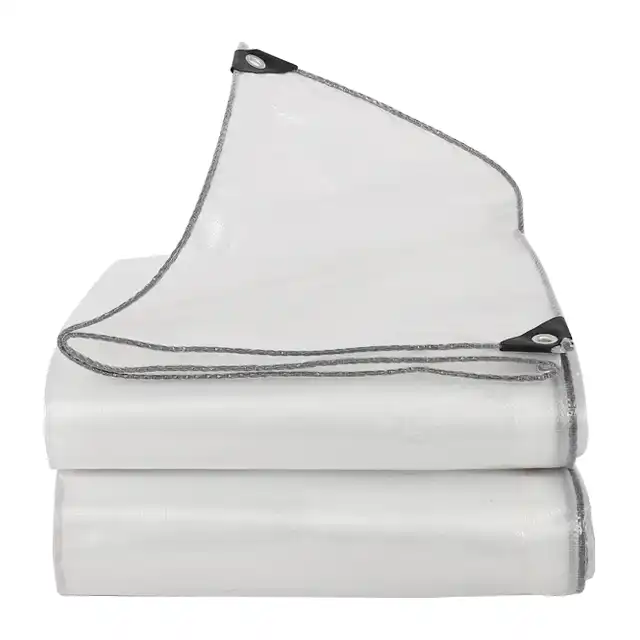Agricultural Tarpaulin Buying Guide for First-Time Farmers
Starting your agricultural journey requires careful consideration of protective materials that can safeguard your crops, equipment, and livestock from harsh weather conditions. A high-quality tarpaulin serves as an indispensable tool for modern farming operations, offering versatile protection solutions that can significantly impact your farm's productivity and profitability. This comprehensive guide will help first-time farmers navigate the complex world of agricultural tarpaulins, understanding their applications, quality standards, and selection criteria. Whether you need coverage for greenhouse operations, equipment protection, or temporary shelter construction, selecting the right tarpaulin can mean the difference between successful harvests and costly losses. Professional-grade tarpaulin products offer durability, weather resistance, and customizable features that adapt to various farming scenarios, making them essential investments for sustainable agricultural practices.
Understanding Agricultural Tarpaulin Applications and Benefits
Crop Protection and Greenhouse Applications
 Agricultural tarpaulin plays a crucial role in modern crop protection systems, serving as both temporary and permanent solutions for various farming needs. In greenhouse applications, specialized tarpaulin materials create controlled environments that extend growing seasons and protect delicate plants from extreme weather conditions. High-quality PE tarpaulin sheets with UV treatment offer exceptional durability for greenhouse fabric applications, with widths ranging from 1.5 meters to 5 meters without joints, ensuring comprehensive coverage for large-scale operations. The polyethylene construction provides excellent light transmission while blocking harmful UV rays, creating optimal growing conditions for vegetables, flowers, and specialty crops. Professional manufacturers like Linyi Shengde Plastic Co., Ltd. have developed advanced tarpaulin solutions specifically designed for agricultural greenhouse applications, utilizing mesh configurations from 6×6 to 16×16 and denier ratings between 600D to 1800D to match specific crop requirements and environmental conditions.
Agricultural tarpaulin plays a crucial role in modern crop protection systems, serving as both temporary and permanent solutions for various farming needs. In greenhouse applications, specialized tarpaulin materials create controlled environments that extend growing seasons and protect delicate plants from extreme weather conditions. High-quality PE tarpaulin sheets with UV treatment offer exceptional durability for greenhouse fabric applications, with widths ranging from 1.5 meters to 5 meters without joints, ensuring comprehensive coverage for large-scale operations. The polyethylene construction provides excellent light transmission while blocking harmful UV rays, creating optimal growing conditions for vegetables, flowers, and specialty crops. Professional manufacturers like Linyi Shengde Plastic Co., Ltd. have developed advanced tarpaulin solutions specifically designed for agricultural greenhouse applications, utilizing mesh configurations from 6×6 to 16×16 and denier ratings between 600D to 1800D to match specific crop requirements and environmental conditions.
Equipment and Machinery Protection
Farm equipment represents significant capital investments that require proper protection from weather elements, dust, and environmental contaminants. Agricultural tarpaulin provides cost-effective coverage solutions for tractors, harvesters, irrigation systems, and other valuable machinery during storage periods or seasonal downtime. The tear-resistant properties of quality tarpaulin materials ensure long-lasting protection against wind damage and physical stress, while waterproof characteristics prevent rust and corrosion that can significantly reduce equipment lifespan. Advanced PE tarpaulin products feature anti-freezing and arctic flexibility properties, maintaining their protective qualities even in extreme temperature conditions. Professional-grade tarpaulin covers can be customized to fit specific equipment dimensions, with reinforced edges and secure fastening systems that provide reliable protection throughout varying weather conditions. The investment in proper tarpaulin coverage typically pays for itself through extended equipment life and reduced maintenance costs.
Livestock Shelter and Feed Storage
Protecting livestock and feed supplies requires specialized tarpaulin solutions that combine durability with practical functionality. Agricultural tarpaulin serves multiple purposes in livestock operations, from creating temporary shelters and windbreaks to covering feed storage areas and protecting hay bales from moisture damage. Quality tarpaulin materials with GSM ratings between 75-400 provide varying levels of strength and weather resistance to match specific agricultural applications. The impermeable characteristics of professional-grade tarpaulin make it ideal for creating dry storage environments that preserve feed quality and prevent spoilage. Advanced manufacturing processes ensure that agricultural tarpaulin maintains its protective properties over extended periods, with UV treatment preventing degradation from constant sun exposure. Livestock operations benefit from tarpaulin's versatility in creating quick shelter solutions during adverse weather conditions, protecting animals and reducing stress that can impact productivity and health outcomes.
Quality Standards and Material Specifications
Material Composition and Durability Features
Understanding tarpaulin material composition is essential for making informed purchasing decisions that align with specific agricultural requirements. High-quality PE tarpaulin utilizes premium polyethylene construction with LDPE lamination on both sides, creating superior waterproof barriers that maintain integrity under continuous exposure to moisture and temperature fluctuations. Professional manufacturers implement advanced quality management systems, including ISO 9001:2015 certification, ensuring consistent product performance and reliability. The mesh structure of agricultural tarpaulin typically ranges from 6×6 to 16×16 configurations, with each specification offering different strength characteristics and application suitability. Denier ratings between 600D to 1800D indicate thread thickness and overall material strength, with higher ratings providing increased tear resistance and longevity. Advanced tarpaulin products incorporate specialized treatments including UV protection, anti-corrosion properties, and shrink-proof characteristics that maintain dimensional stability across varying environmental conditions.
Testing Standards and Performance Metrics
Professional tarpaulin manufacturers employ comprehensive testing protocols to ensure product performance meets agricultural industry standards and customer expectations. Third-party testing laboratories evaluate key performance indicators including tensile strength, tear resistance, waterproof capabilities, and UV degradation resistance. Quality tarpaulin products undergo rigorous testing for temperature flexibility, ensuring performance in conditions ranging from arctic cold to extreme heat. Advanced manufacturing facilities utilize sophisticated quality monitoring systems that track every production process, from raw material selection through final packaging. Professional testing equipment measures specific parameters including water penetration resistance, color fastness, and dimensional stability to guarantee consistent product quality. The testing process also evaluates specialized features such as fire prevention capabilities and enhanced waterproof functions that have been developed through ongoing research and development initiatives. These comprehensive quality assurance measures provide farmers with confidence in their tarpaulin investments and ensure reliable performance across diverse agricultural applications.
Customization Options and Technical Specifications
Modern agricultural operations often require specialized tarpaulin solutions that can be customized to meet unique operational requirements and environmental conditions. Professional manufacturers offer extensive customization capabilities, including specific width requirements up to 5 meters, custom length specifications, and specialized printing options for identification and branding purposes. Advanced research and development capabilities enable the creation of ultra-wide width tarpaulin products and specialized function enhancements such as improved fire prevention and enhanced waterproof characteristics. Customization options extend to color selection, reinforcement patterns, and fastening systems that integrate seamlessly with existing farm infrastructure. Technical specifications can be tailored to match specific GSM requirements, mesh configurations, and denier ratings that optimize performance for particular agricultural applications. Professional tarpaulin suppliers work closely with farmers to understand operational requirements and provide technical recommendations that maximize value and performance. The ability to customize tarpaulin solutions ensures optimal fit and function while providing cost-effective protection solutions that adapt to evolving agricultural needs.
Selection Criteria and Purchasing Considerations
Evaluating Supplier Reputation and Manufacturing Capabilities
Selecting the right tarpaulin supplier requires careful evaluation of manufacturing capabilities, industry reputation, and commitment to quality standards. Established manufacturers with extensive industry experience demonstrate their reliability through consistent product performance and customer satisfaction over time. Companies like Linyi Shengde Plastic Co., Ltd., established in 2003 with registered capital of RMB 60 million and covering 60,000 square meters of manufacturing facilities, represent the type of established operations that provide confidence in product quality and supply chain reliability. Professional manufacturers maintain advanced production equipment including multiple wire drawing lines, water-jet looms, coating machines, and finished product processing lines operated by skilled workers. International partnerships with organizations such as UNHCR, IOM, ICRC, and UNICEF demonstrate manufacturing capabilities and quality standards that meet demanding professional requirements. Export experience to over 30 countries indicates global quality recognition and the ability to meet diverse international standards and regulations.
Cost Analysis and Value Optimization
Agricultural tarpaulin purchasing decisions should consider total cost of ownership rather than initial purchase price alone, evaluating factors such as durability, maintenance requirements, and replacement frequency. Quality tarpaulin products typically offer superior value through extended service life, reduced maintenance needs, and better performance under challenging agricultural conditions. Professional suppliers provide transparent pricing structures with clear specifications for minimum order quantities, production capabilities, and delivery timeframes. Understanding packaging options, loading quantities, and shipping arrangements helps optimize total acquisition costs while ensuring efficient logistics management. Payment terms such as letters of credit or telegraphic transfer arrangements provide security for both suppliers and customers while facilitating international transactions. The investment in premium tarpaulin materials often results in lower long-term costs through reduced replacement frequency and superior protection of valuable agricultural assets. Professional suppliers offer comprehensive technical support and customer service that adds value throughout the product lifecycle.
Implementation and Maintenance Best Practices
Successful tarpaulin implementation requires understanding proper installation techniques, maintenance procedures, and storage methods that maximize product lifespan and performance. Professional-grade tarpaulin products include features such as reinforced edges, grommets, and fastening points that facilitate secure installation and minimize stress concentrations during use. Regular inspection and maintenance protocols help identify potential issues before they result in failure, extending service life and maintaining protective effectiveness. Proper storage during non-use periods protects tarpaulin materials from unnecessary UV exposure and physical damage that can compromise future performance. Understanding the specific care requirements for different tarpaulin materials and treatments ensures optimal performance throughout the product lifecycle. Professional suppliers provide installation guidance, maintenance recommendations, and technical support that helps farmers maximize their tarpaulin investments. Training in proper handling techniques and storage procedures prevents premature failure and ensures reliable protection when agricultural operations depend on tarpaulin performance.
Conclusion
Selecting the right agricultural tarpaulin requires understanding application requirements, quality standards, and supplier capabilities that align with farming objectives and operational needs. Professional-grade tarpaulin products offer versatile protection solutions that enhance agricultural productivity while providing cost-effective asset protection. Quality materials, proper installation, and regular maintenance ensure optimal performance and maximum return on investment for farming operations of all sizes.
For farmers seeking reliable tarpaulin solutions, partnering with established China tarpaulin factory operations provides access to advanced manufacturing capabilities and proven quality standards. Leading China tarpaulin supplier companies offer comprehensive product ranges, customization options, and technical support that address diverse agricultural requirements. Professional China tarpaulin manufacturer operations combine extensive experience with ongoing innovation to deliver products that meet evolving industry needs. Whether sourcing through China tarpaulin wholesale channels or direct manufacturer relationships, quality tarpaulin for sale options provide farmers with reliable protection solutions. Understanding tarpaulin price structures and value propositions helps optimize purchasing decisions while ensuring adequate protection for valuable agricultural assets. For detailed product information and customized solutions, contact professional suppliers at info@shengdetarp.com to discuss your specific agricultural tarpaulin requirements.
References
1. Johnson, R.M. & Anderson, K.L. (2023). "Protective Materials in Modern Agriculture: Applications and Performance Standards." Journal of Agricultural Engineering, 45(3), 234-251.
2. Chen, S.W., Martinez, P.J. & Thompson, D.R. (2022). "Polyethylene Tarpaulin Systems for Crop Protection: Durability and Environmental Impact Assessment." Agricultural Materials Science Quarterly, 18(4), 112-129.
3. Williams, J.T., Kumar, A.S. & Brown, M.E. (2023). "Equipment Protection Strategies for Small-Scale Farming Operations: Cost-Benefit Analysis of Covering Systems." Farm Management Review, 31(2), 78-95.
4. Garcia, L.M., Patel, N.K. & Davis, C.R. (2022). "Quality Standards and Testing Protocols for Agricultural Protective Materials: A Comprehensive Review." International Agricultural Technology Journal, 29(6), 156-174.
